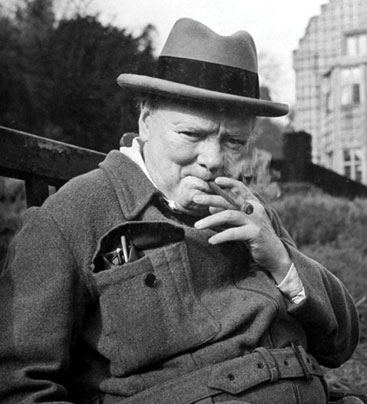MR. BRODRICK’S ARMY

[1903]
(Cohen A10) (Woods A6)
Published as a kind of celebration, Mr. Brodrick’s Army consists of six speeches — or “oratorical onslaughts,” as Manfred Weidhorn describes them — given by Churchill over the course of two years. The speeches criticized Secretary of State for War St. John Brodrick and his plan for expanding the permanent peacetime army from two to three divisions. While he was a member of Brodrick’s Party (though not for much longer), Churchill led the Parliamentary opposition to “Brodrick’s Army,” invoking the theme of economy proposed by his late father and lambasting Brodrick with some of his best early oratory: “[In] war with any great Power…three army corps would scarcely serve as a vanguard. If we are hated, they will not make us loved. If we are in danger, they will not make us safe. They are enough to irritate; they are not enough to overawe. Yet, while they cannot make us invulnerable, they may very likely make us venturesome” (12 May 1901).
Until 1977, when modern facsimiles were published by Dalton Newfield, Mr. Brodrick’s Army was one of two Churchill books, the other being For Free Trade, that were virtually impossible to acquire. Newfield did a great service by making a facsimile available in 1977, which constitutes the First American Edition (a binding variation of which is picture left).
–Richard M. Langworth
From the Reviews
“The parallels between Churchill’s 1901 opposition to Secretary of State for War St. John Brodrick’s Army Reforms and Lord Randolph Churchill’s 1886 battle with Secretary of State W. H. Smith over Army Estimates are many and striking—down to the coincidence of Smith’s right hand at the War Office being none other than Mr. Brodrick. ‘Alone in opposing his own conservative government, on 13 May 1901, Churchill made his first great oration…the ex-officer appealed to the very principles on behalf of which his father had resigned and ruined himself…Thus the son began his long political journey…’ (Weidhorn, Sword and Pen, 1974). Even in his initial assault on Brodrick, Winston’s identification with Randolph was unmistakable; he made the House listen to him read aloud from speeches his father had delivered in the same room twenty years earlier.
“There is, however, one titanic difference between the generational struggles: Winston won and launched one of the most productive Parliamentary careers in English history, while Randolph lost, resulting first in his resignation as Chancellor of the Exchequer in December 1886, and, soon afterward, the end of his political life.
“Did a sense of injustice, even a need to expiate adolescent shame, motivate Churchill in the Brodrick affair? Many MPs thought yes, including Arthur Lee (later Lord Lee of Fareham, who presented “Chequers” to the nation as a country residence for Prime Ministers). The day after the first anti-Brodrick blast, Lee commented that Winston was wrong ‘to confuse filial piety with public duty.’
“Blatantly oedipal as the roots of his motives might now appear, Churchill was also earnest about his position—’a definitive divergence of thought and sympathy from nearly all those [Conservatives] thronging the benches around me,’ he later wrote—and the Brodrick controversy marks the onset of his alienation from the Tories, the party of his father and or his class. Sensing the constructive turmoil in Winston, John Burns, the veteran radical Fabian, wrote admiringly to Lady Randolph: ‘..to share with his mother the hope that he [Winston] will go further in the career he has chosen and on the excellent lines of his courageous speech…’”
—Glenn Horowitz, Finest Hour 71, Second Quarter 1991
Appraisal
The rarest Churchill book; in his Note to the First American Edition, Newfield suggests that “less than a dozen” copies exist. The distinguished late Churchill collector Harry Cahn mentioned that he had acquired his copy in the 1920s for two shillings sixpence (2s. 6d.), which proved to be a canny investment. Today, copies command high five-figure prices.
§ § §
Editions
First [Supposed] Edition
Cohen A10.1 / Woods A6(a)
Publisher: Arthur L. Humphreys, London, 1903
Stated by Woods to be a 44-page pamphlet measuring 8 3/8 x 5 1/2 inches, with a completely separate [B: Does he mean “different” typesetting?] setting from the larger version. Bibliographer Frederick Woods assigns this pamphlet’s publication priority, but adds that, “there is no clear evidence that this version was ever released and we would therefore regard it as most likely that Churchill, displeased with its appearance, demanded a better production and got it.” Only one copy is reported to exist.
Second [First?] Edition
Cohen A10.2 / Woods A6(b)
Publisher: Arthur L. Humphreys, London, 1903
Bound in red card wrappers with title, author’s name, publisher, date and price printed black and centered on front face; verso of front face and rear wrapper blank. 8vo.,104 pages numbered 1-(104). Published at 1 shilling (25¢). No variations reported. (Contrary to Woods, the typeface is 14-point, not 12-point Bodoni.)
 First American Edition
First American Edition
Cohen A10.3 / ICS A6c
Publisher: The Churchilliana Company, Sacramento, 1977
Hardbound, gilt stamped with title, author’s name and publisher’s logo on cover and spine. Preceding the facsimile are front matter, cartoon (from the Westminster Gazette, 14 May 1901), a preface by Weidhorn and a publisher’s note by Newfield. The text was completely reset and sandwiched between replica red wrappers, printed black on front face. Endpapers reproduce Churchill’s entry in Who Was Who 1961-1970. Published in half-brown cloth and half-cream buckram “collector’s binding” at $22.50 and a full-brown cloth “library binding” at $18.50. An outstanding service to the student, scholar, bibliophile and collector that continues to honor the memory of its late publisher, Newfield. Not in Woods.
§ § §
Click here for a list of terminology, bibliographic information, and other notes.


